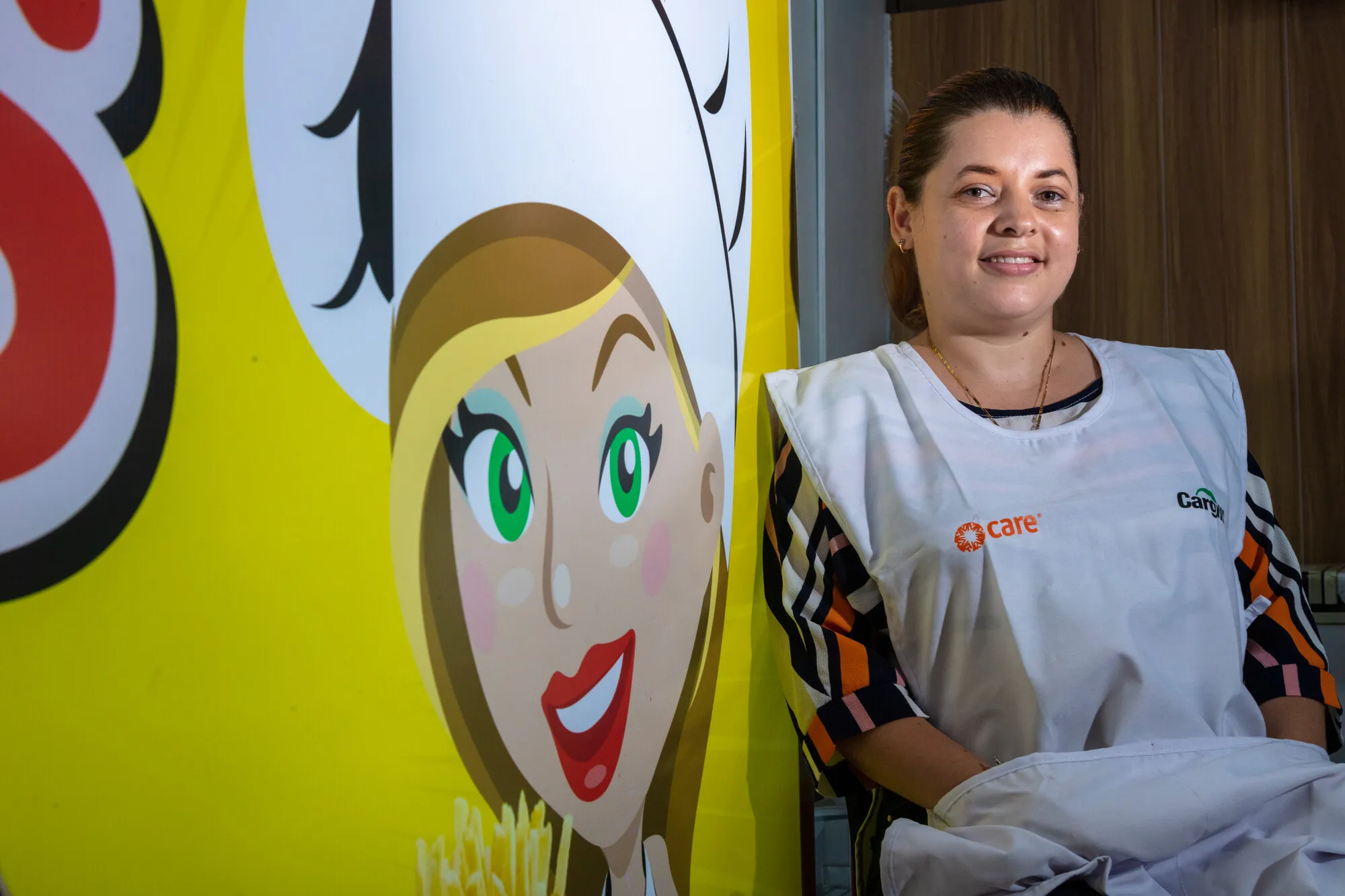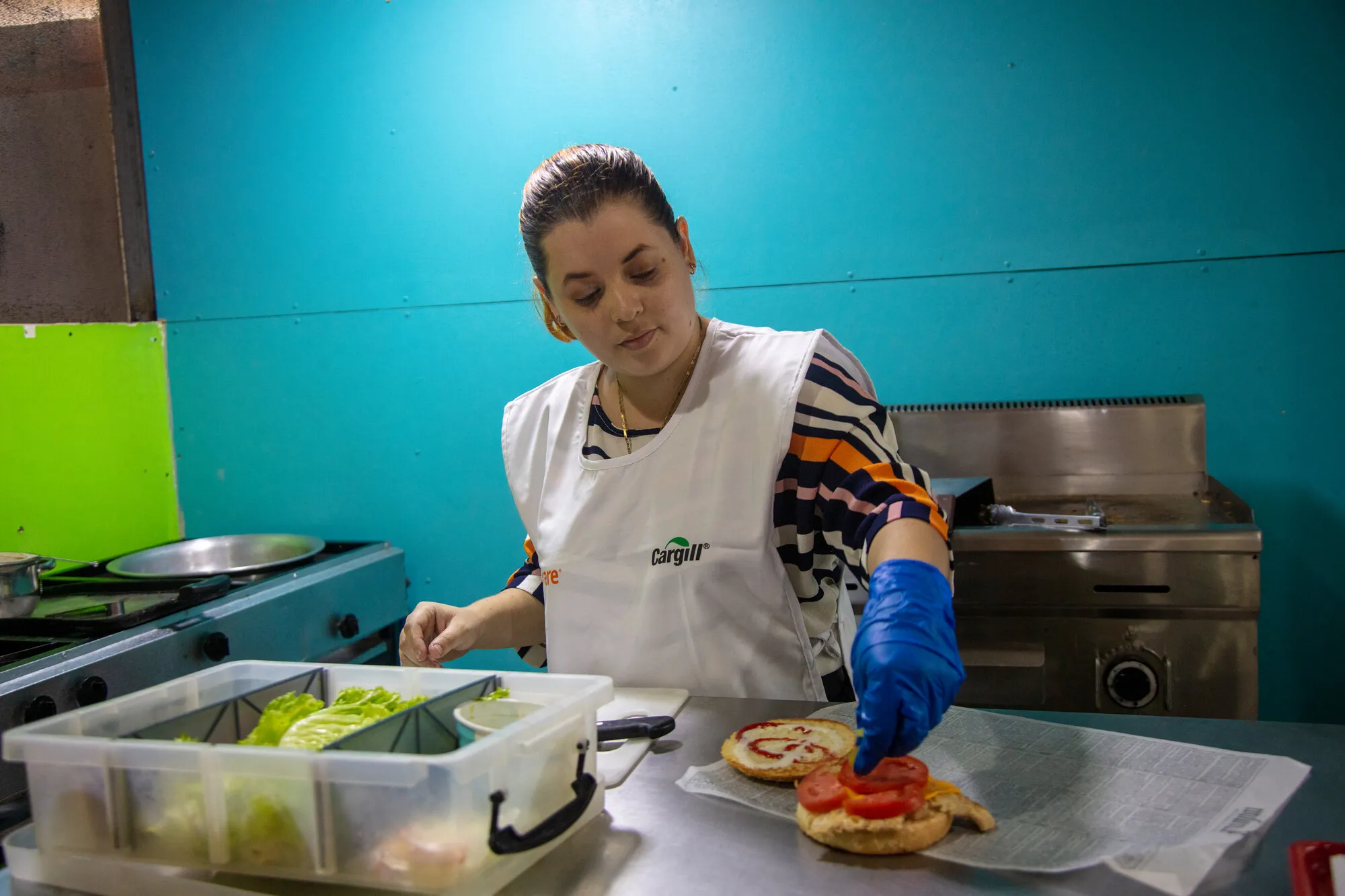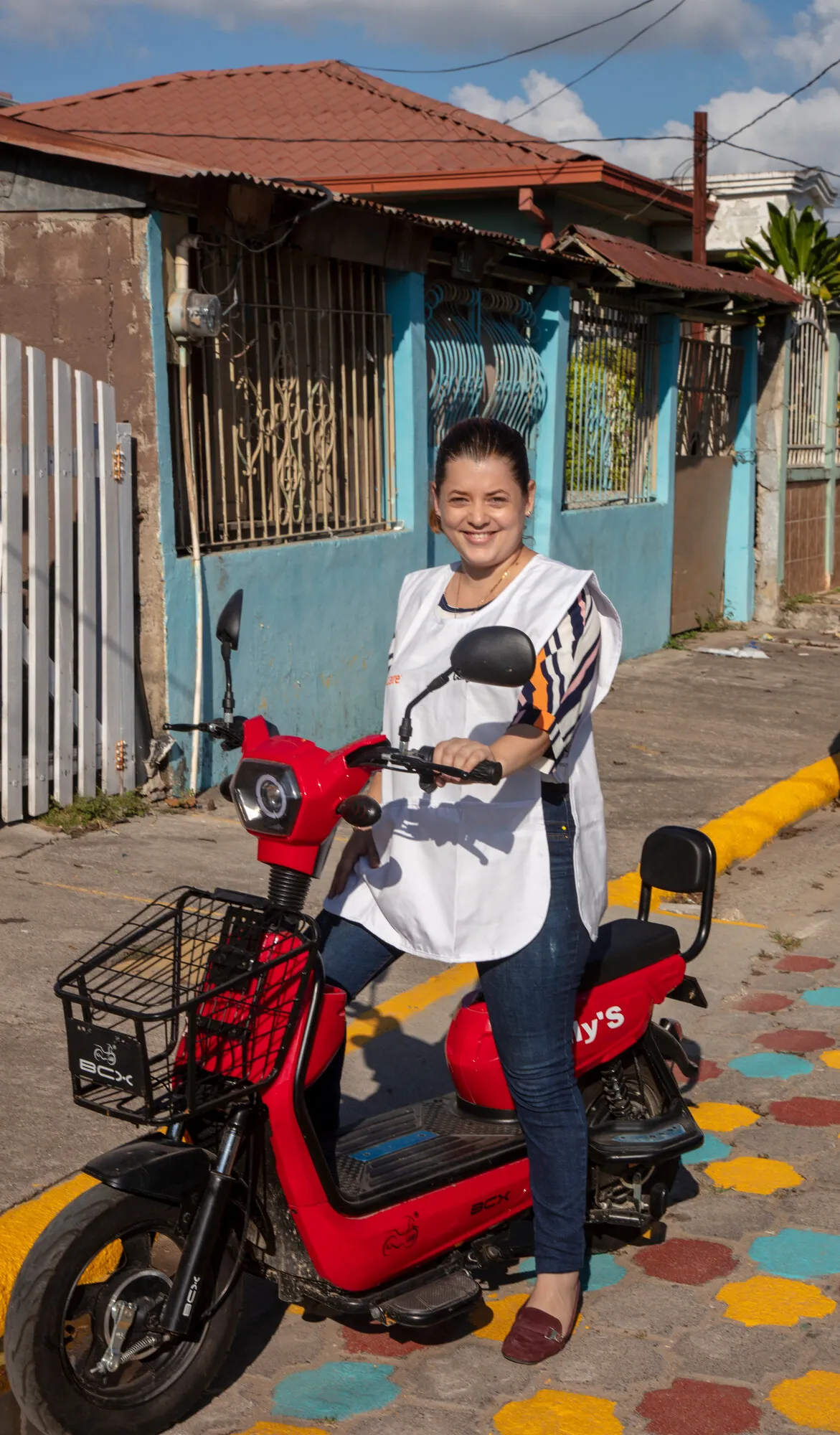Here, on a neighborhood street in the town of Villanueva, Honduras, just south of San Pedro Sula, the country’s financial capital and second-largest city, she began selling baleadas, a traditional Honduran handheld food, to passerby.
Today, this personable, good-humored young woman offers a full fast-food menu centered around burgers, chicken sandwiches, and wings, from a sturdy concrete building on the exact same site where she first had her tent, but now with branding that rivals any of her multinational rivals out on CA-5, the main drag between San Pedro Sula and Tegucigalpa, the capital.
Ely isn’t stopping with one successful brick-and-mortar location. On this particular day she is opening up a second branch, and she already invested in a food truck to serve events. With the support of partner Cargill, CARE has helped along the way by forming rural savings banks, which offer entrepreneurs like Ely access to micro-credit. CARE has also offered business management training. Her ambition, she says, is to go into franchising, with multiple locations in Honduras and potentially beyond.



